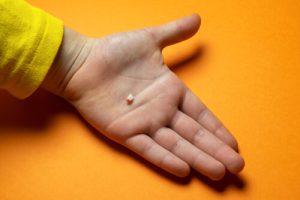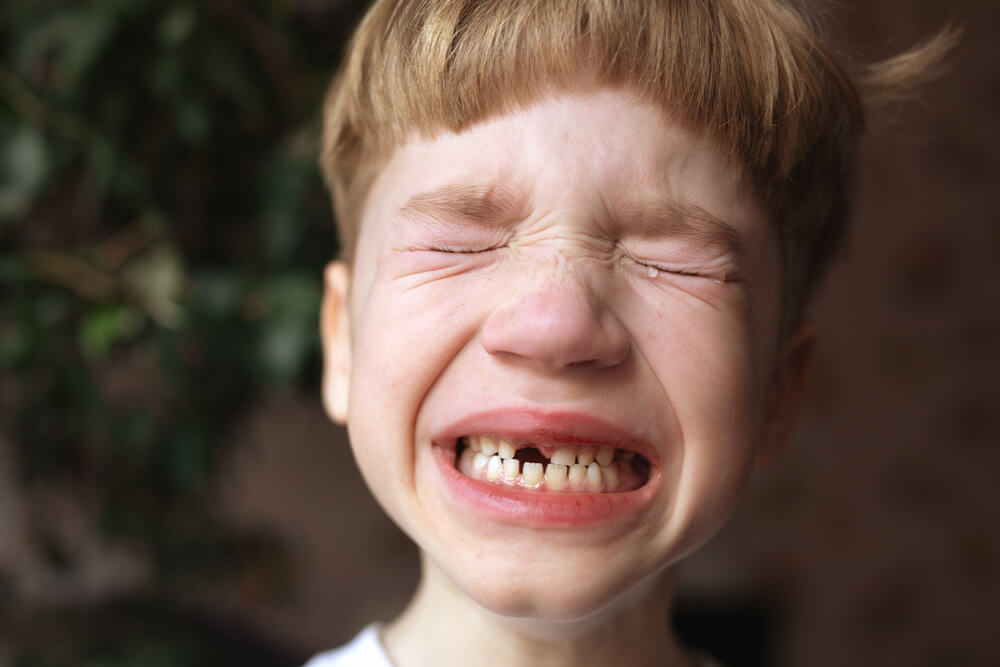It’s every parent’s nightmare: their baby falls, and a tooth gets knocked out. What should you do? Save the tooth or let it go? For some parents, the choice is easy: if the tooth is dirty, they will throw it away. If the tooth is clean, they may try to save it. But for other parents, the decision isn’t so clear-cut. For instance, we all know toothache needs medication, and an abscess needs to be drained. But should you treat a knocked-out baby tooth the same as a permanent one? In this blog post, we’ll discuss the pros and cons of saving an avulsed baby tooth and offer some advice on what to do in this situation.
Tooth Avulsion
A knocked-out tooth occurs when a tooth is completely dislodged from its socket. Avulsed teeth are dental emergencies and require immediate treatment.
Baby Teeth are Important

When a Tooth Is Knocked Out
When your child knocks a tooth out, it can sometimes be traumatic. So it’s important to diffuse the situation with comfort and empathy immediately. After that, you’ll want to find the tooth, as there’s a good chance it can be reimplanted if it’s a permanent tooth. Locating the lost tooth is important for several reasons. For younger children, accidentally swallowing the tooth could cause them to choke. In some cases, only a piece of the tooth breaks on impact. The broken piece could be sharp. The pediatric dentist may inspect the lost tooth as well as the now-empty socket during the evaluation. As a parent, you need to make sure that you take care of your child’s teeth and mouth while waiting for your appointment. To do so, you’ll need to observe the following steps:

- Make sure the tooth is not fractured and completely intact.
- Avoid rubbing or running the tooth under tap water if dirty. Briefly clean it in a bowl of lukewarm tap water. It’s vital to keep the root’s surface cells alive and untouched, as they’re needed for reattachment.
- Attempt to insert the tooth back into the socket by gently biting down on gauze or a moist paper towel. Try to keep the jaw shut and bite down until you reach your dentist.
- If you can’t insert your tooth into the socket, store it in your cheek, a small container of saliva, or cold milk. There are also over-the-counter solutions if you have quick access to pharmacies. Take pain meds if needed.
- Then get to your dentist as soon as possible for treatment. If they’re closed, visit your local emergency room.
What can Happen after your Acute Dental Trauma
If your child loses a baby tooth earlier than expected, there’s no need to try to replace it. But if a permanent tooth comes out, it’s a dental emergency. Permanent teeth have the best chance of being saved when replaced within 15 minutes. If it’s a permanent tooth that’s been cleanly knocked out, there’s a good chance your dentist can reattach it. This process is quite simple, actually, as it will be splinted to the teeth next door using a thin metal or plastic wire. Over the next several weeks, the ligaments that connect the tooth to the jawbone should regrow. Your dentist will remove the splint when the tooth is strong and reattached. On the other hand, a knocked-out baby tooth will most likely require a space maintainer. We all know our kids eventually lose their baby teeth naturally. But when it’s premature, it can lead to overcrowding in the recently vacated spot in your mouth, crooked teeth, and eating issues. Your teeth could spread out and not leave enough room for the permanent tooth under the knocked-out tooth to emerge correctly, according to the American Dental Association (ADA). A space maintainer can help prevent this as the metal appliance is inserted in the lost tooth location to help keep that area open so the permanent tooth underneath it can adequately emerge. You want to care for and protect your child as they grow up, but sometimes an incident like a tooth getting knocked out happens. The insight above can help prepare you and your child should something like this occur. And when managed properly, your child could look back on the experience as triumphant as they courageously endured it and knocked it out.
Preventing Dental Trauma in Children
The best trauma treatment is prevention, and there are many ways to help prevent dental trauma. Children who are just learning to walk or run should be monitored closely as they are often prone to stumbling, and their height makes it easy for them to bump into corners of chairs or tables. In addition, all children involved in high-contact sports should wear protective mouthguards. Research has shown that using protective mouthguards significantly decreases the occurrence and severity of dental trauma. With these tips in mind, here’s to a fun and safe playtime!
References:
http://www.mouthhealthy.org/en/az-topics/s/space-maintainers https://www.colgate.com/en-us/oral-health/dental-emergencies-and-sports-safety/my-child-has-a-knocked-out-tooth-what-should-i-do https://kidshealth.org/en/parents/tooth-sheet.html https://my.clevelandclinic.org/health/diseases/21579-avulsed-tooth


Recent Comments